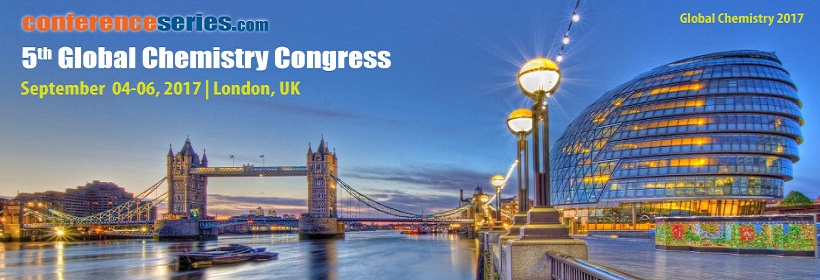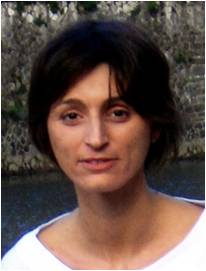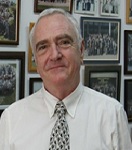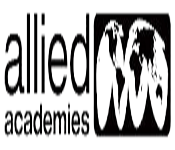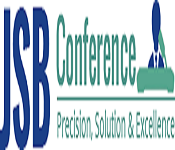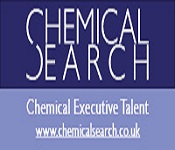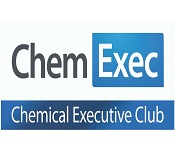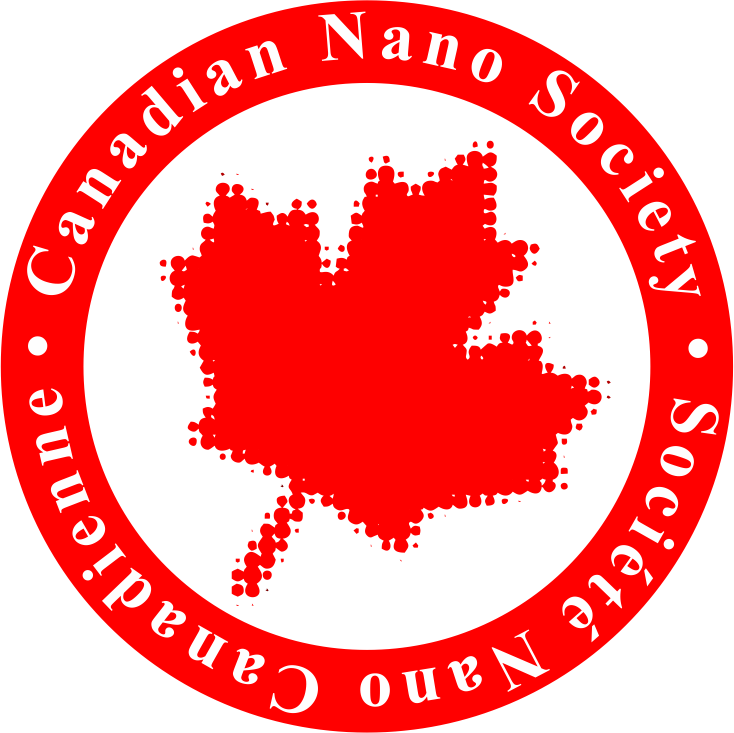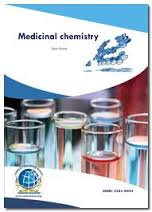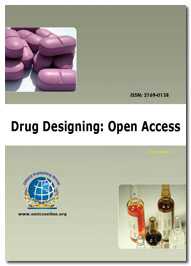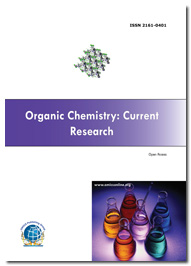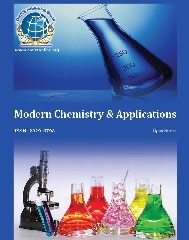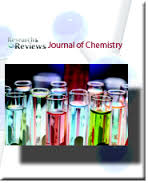Theme: Accentuating Novel Researches and frontline Advances of Chemistry
Global Chemistry 2017
On behalf of 5th Global Chemistry Congress 2017 organizing committee, invites analytical expertise, chemistry people in all fields, researchers, professors, scientific communities, delegates, students, business professionals and executives to attend the “5th Global Chemistry Congress” which is going to be held during Sep 04-06, 2017, London, UK.
5th Global Chemistry Congress 2017 is an international platform for presenting research about chemistry and related fields thus contributes to the dissemination of knowledge for the benefit of both the academia and business. This event brings together the top professionals in the field along with the highly affiliated professors to explore the advancements and latest applications achieved in the field of chemistry in each area. 5th Global Chemistry Congress 2017 discusses various fields of chemistry employed in Analytical Chemistry and Applications, Pharmaceutical Chemistry, Organic Chemistry, Cereal Chemistry, Agricultural and Food Chemistry, Inorganic Chemistry, Bio Chemistry and Bio molecular Chemistry, Environmental and Green Chemistry, Polymer Chemistry, Forensic Chemistry, Physical and Theoretical Chemistry, Fuel Chemistry, Nano chemistry, Materials Science and Metallurgical and chemical science fields which mark the support for the advanced and much needed research by their study on various topics. The scientific program will focus on current advances in the research in chemistry world and related with particular focus on its roles and applications in various fields.
In the light of this theme, the conference series aims to provide a forum for international researchers from various areas of chemistry, pharmacy, life science by providing a platform for critical analysis of new data, and to share latest cutting-edge research findings and results about all aspects of chemistry world. Chemistry conferences provide a platform to detail the research work of expertise from various scientific backgrounds and the same can be perceived by young researchers and students. In course of research work and therefore World Congress on Chemistry would be a perfect venue to share and develop knowledge on chemistry world in various aspects.
This research examines the world Chemistry markets in terms of the challenges faced by market participants, drivers and restraints in the industry, the competitive structure in the major markets, the revenue forecasts and growth rates and strategic recommendations. Chemical industry is key for economic development and wealth, providing modern products and materials and enabling technical solutions in virtually all sectors of the economy. Today’s global chemical markets are experiencing a much higher degree of uncertainty than they did just five years ago. As a result, chemical professionals must often make high-revenue decisions with limited future visibility.
ConferenceSeries Ltd Organizes 1000+ Global Events Every Year across USA, Europe & Asia with support from 1000 more scientific societies and Publishes 700+ Open access journals which contains over 100000 eminent personalities, reputed scientists as editorial board and organizing committee members. The conference series website will provide you list and details about the conference organize worldwide. Chemistry conferences are gathering of group of people to share their research ideas and knowledge of specific techniques and topics in chemistry field in Chemistry Conferences. Frequently there are more than a few speakers within each conference, and these speakers are experts in chemistry fields. In these Chemistry Meetings several topic reviews are programmed each day throughout the conference, and participants can usually make their choice of topics from among these scheduled international events. To discuss the issues and accomplishments in the field of engineering ConferenceSeries Ltd has taken the initiation to gather the world class experts both from academic and industry in a common platform at its Chemistry conferences.
Why London:
London is the capital and most populous city of England and the United Kingdom standing on the River Thames in the south east of Great Britain. London is the political, economic and cultural capital of Britain, and its world class tourist attractions are renowned across the globe. It is the world's most-visited city as measured by international arrivals and has the world's largest city airport system measured by passenger traffic. It is the world’s leading investment destination hosting more international retailers than any other city. A multicultural city, London has a diverse range of peoples and cultures, and more than 300 languages are spoken within its boundaries.
It is a leading global city, with strengths in the arts, commerce, education, entertainment, fashion, finance, healthcare, media, professional services, research and development, tourism, and transport all contributing to its prominence.
London’s main tourist attractions include the tower of London, Kew Botanic Garden, the palace of Westminster, St. Margaret’s church, National Maritime museum. Other famous landmarks include Buckingham Palace, the London Eye, Piccadilly Circus, St Paul's Cathedral, Tower Bridge, Trafalgar Square, and The Shard. London is home to numerous museums, galleries, libraries, sporting events and other cultural institutions, they are the British Museum, National Gallery, British Library and 40 West End theatres.
Target Audience:
Directors, Presidents, CEO’s from companies, Business Intelligence Experts, Scientists, Vice Presidents, Manufacturers, Brand Marketers, Instrument vendors, Advertising and Promotion Agency Executives, Solution Providers, Professors and Students from Academia.
Why to attend:
- ​Meet experts and influencers face to face
- Conferences provide a great opportunity to network where most people can help each other uncover ideas and spark inspiration.
- Encounter new vendors and suppliers
- Attending a conference forces you to grow and challenge yourself
Track 1: Organic Chemistry
Organic Chemistry research involves the synthesis of organic molecules and the study of their reaction paths, interactions, and applications. Advanced interests include diverse topics such as the development of new synthetic methods for the assembly of complex organic molecules and polymeric materials, organometallic catalysis, organocatalysis, the synthesis of natural and non-natural products with unique biological and physical properties, structure and mechanistic analysis, natural product biosynthesis, theoretical chemistry and molecular modelling, diversity-oriented synthesis, and carbohydrate synthesis.
Related Chemistry Conferences | Chemistry Meetings | Chemistry
3rd World Chemistry Conference, September 11-12, 2017 Dallas, USA; 2nd International Conference and Exhibition on Materials Chemistry, July 13-14, 2017 Berlin, Germany; 3rd International Conference on Organic & Inorganic Chemistry, July 24-26, 2017 Chicago, Illinois, USA; International Conference on Polymer Chemistry November 14-16, 2016 Atlanta, USA; Organic Process Research and Development, 06 - 08 March 2017, Pasadena, USA; The Scale-Up of Chemical Processes, 19 - 20 June 2017, Rochester, USA; Asia Pacific Hybrid and Organic Photovoltaics Conference (AP-HOPV17), 03 - 04 February 2017, Yokohama, Japan; 13th Winter Conference on Medicinal and Bioorganic Chemistry, 22 - 26 January 2017, Steamboat Springs, USA; Natural Products & Bioactive Compounds, July 29-30, 2017, USA
Related Societies
Royal Society of Chemistry, United Kingdom; European Chemical Society; Society of Chemical Industry, European Union; Hong Kong Chemical Society, Hongkong; Hungarian Chemical Society, Hungary; Indian Chemical Society, India; ; International Union of Pure and Applied Chemistry, USA; Italian Chemical Society, Italy; Swedish Chemical Society, Sweden; Royal Australian Chemical Institute, Australia; Société Chimique de France, France; Royal Netherlands Chemical Society, Netherlands; Chemical Research Society of India, India; Japan Association for International Chemical Information, Japan; Norwegian Chemical Society, Norway; The Korean Chemical Society, Korea; Canadian Society for Chemical Technology, Canada; American Society for Mass Spectrometry, USA; Belgian Society of Biochemistry and Molecular Biology, Belgium; American Institute of Chemists, USA
Track 2: Medicinal Chemistry
Medicinal chemistry has evolved rapidly into a highly interdisciplinary field, enriched by the collaborative efforts of experts from a wide spectrum of specialist areas, from chemoinformaticians and physical chemists to molecular biologists and pharmacologists. Medicinal chemistry is concerned with the invention, discovery, design, identification and preparation of biologically active compounds, the study of their metabolism, the interpretation of their mode of action at the molecular level and the construction of structure-activity relationships. Future Medicinal chemistry provides a monthly point of access to commentary and debate for this ever-expanding and diversifying community.
Related Chemistry Conferences | Chemistry Meetings | Chemistry
International Conference on Medicinal Chemistry and Computer Aided Drug Designing Conference December 05-07, 2016 Phoenix, Arizona, USA; International Conference on Materials Chemistry July 13-14, 2017 Berlin, Germany; 2nd International Conference on Clinical Chemistry December 11-13, 2017 Jackson Ville, USA; International European Chemistry Congress May 11-13, 2017 Barcelona, Spain; Blue Danube Symposium on Heterocyclic Chemistry 2017, 30th August - 2nd September 2017, Linz, Austria; The 3rd Mediterranean Symposium on Medicinal and Aromatic Plants (MESMAP-3), 13 - 16 April 2017, Turkish Republic of Northern Cyprus; Asia Pacific Hybrid and Organic Photovoltaics Conference (AP-HOPV17), 03 - 04 February 2017, Yokohama, Japan; 13th Winter Conference on Medicinal and Bioorganic Chemistry, 22 - 26 January 2017, Steamboat Springs, USA; Natural Products & Bioactive Compounds, July 29-30, 2017, USA
Related Societies
Royal Society of Chemistry, United Kingdom; European Chemical Society; Society of Chemical Industry, European Union; Hong Kong Chemical Society, Hongkong; Hungarian Chemical Society, Hungary; Indian Chemical Society, India; ; International Union of Pure and Applied Chemistry, USA; Italian Chemical Society, Italy; Swedish Chemical Society, Sweden; Royal Australian Chemical Institute, Australia; Société Chimique de France, France; Royal Netherlands Chemical Society, Netherlands; Chemical Research Society of India, India; Japan Association for International Chemical Information, Japan; Norwegian Chemical Society, Norway; The Korean Chemical Society, Korea; Canadian Society for Chemical Technology, Canada; American Society for Mass Spectrometry, USA; Belgian Society of Biochemistry and Molecular Biology, Belgium; American Institute of Chemists, USA
Track 3: Analytical Chemistry
Analytical chemistry is a branch of modern chemistry of special social importance, which affects numerous areas of contemporary life, welfare and safety of societies, progress in all fields of modern technologies. Thorough presence of chemical analysis in all areas of human activity, includes first of all control functions of chemical analysis, namely control of materials of all fabricated items and devices, control of effects of the civilisation development on natural environment, indispensable support of clinical diagnostics, or prevention of terrorist attacks. The progress of material science, which is essential for development of all areas of technology significantly depends on abilities, and technical possibilities of the most precise and accurate control of the chemical composition of materials and in fact it is the main purpose and goal of chemical analysis, and the subject of its improvement in scientific research in the field of analytical chemistry.
Related Chemistry Conferences | Chemistry Meetings | Chemistry
3rd World Chemistry Conference, September 11-12, 2017 Dallas, USA; 2nd International Conference and Exhibition on Materials Chemistry, July 13-14, 2017 Berlin, Germany; 3rd International Conference on Organic & Inorganic Chemistry, July 24-26, 2017 Chicago, Illinois, USA; International Conference on Polymer Chemistry November 14-16, 2016 Atlanta, USA; Organic Process Research and Development, 06 - 08 March 2017, Pasadena, USA; The Scale-Up of Chemical Processes, 19 - 20 June 2017, Rochester, USA; Asia Pacific Hybrid and Organic Photovoltaics Conference (AP-HOPV17), 03 - 04 February 2017, Yokohama, Japan; 13th Winter Conference on Medicinal and Bioorganic Chemistry, 22 - 26 January 2017, Steamboat Springs, USA; Natural Products & Bioactive Compounds, July 29-30, 2017, USA
Related Societies
Royal Society of Chemistry, United Kingdom; European Chemical Society; Society of Chemical Industry, European Union; Hong Kong Chemical Society, Hongkong; Hungarian Chemical Society, Hungary; Indian Chemical Society, India; ; International Union of Pure and Applied Chemistry, USA; Italian Chemical Society, Italy; Swedish Chemical Society, Sweden; Royal Australian Chemical Institute, Australia; Société Chimique de France, France; Royal Netherlands Chemical Society, Netherlands; Chemical Research Society of India, India; Japan Association for International Chemical Information, Japan; Norwegian Chemical Society, Norway; The Korean Chemical Society, Korea; Canadian Society for Chemical Technology, Canada; American Society for Mass Spectrometry, USA; Belgian Society of Biochemistry and Molecular Biology, Belgium; American Institute of Chemists, USA
Track 4: Green Chemistry and Renewable Resources
Green chemistry is the utilization of a set of principles that reduces or eliminates the use or generation of hazardous substances in the design, manufacture and application of chemical products. It is not a new branch of science. It is a new philosophical approach that through application and extension of the principles of green chemistry can contribute sustainable development. Green chemistry is essential in developing the alternatives for energy generation (hydrogen cell, fuels cells, biofuels, etc.). As well as continue the path toward energy efficiency with catalysis and product at the forefront. By the help of green chemistry the approaches towards the renewable resources can be made increasingly viable technologically and economically. There is a wide range of renewable feed stocks including trees, grasses, shrubs, marine resources wastes which is used for developing new, sustainable, low environmental impact routes to important chemical products, and biofuels. Renewable resources are used whenever possible at the end of their use, non-biodegradable materials are recycled. Using the environment technology we can conserve the natural environment and curb the negative impacts of human involvement.
Related Chemistry Conferences | Chemistry Meetings | Chemistry
International Conference on Electrochemistry July 10-11, 2017 Berlin, German. 2nd International Conference and Exhibition on Materials Chemistry, July 13-14, 2017 Berlin, Germany; 2nd International Conference on Industrial Chemistry and Water Treatment, May 22-23, 2017 Las Vegas, USA; 5th International Conference and Exhibition on Pain Research and Management September 04-05, 2017 London, UK; 4th World Congress on Chromatography August 07-09, 2017 Rome, Italy; Flow Chemistry Conference Europe, February 7-8, 2017 Cambridge, United Kingdom; The International on Green Chemistry Conference May 16-19, 2017 France 8thInternational Conference on Green and Sustainable Chemistry, July 24-28, 2017, Melbourne, Victoria, Australia; 21st Annual Green Chemistry Conference June 13-15, 2017, Virginia, USA; Bio-Resources: Feeding a Sustainable Chemical Industry Conference, June 19-21, 2017, London, United Kingdom.
Related Societies
Royal Society of Chemistry, United Kingdom; European Chemical Society; Society of Chemical Industry, European Union; Hong Kong Chemical Society, Hongkong; Hungarian Chemical Society, Hungary; Indian Chemical Society, India; ; International Union of Pure and Applied Chemistry, USA; Italian Chemical Society, Italy; Swedish Chemical Society, Sweden; Royal Australian Chemical Institute, Australia; Société Chimique de France, France; Royal Netherlands Chemical Society, Netherlands; Chemical Research Society of India, India; Japan Association for International Chemical Information, Japan; Norwegian Chemical Society, Norway; The Korean Chemical Society, Korea; Canadian Society for Chemical Technology, Canada; American Society for Mass Spectrometry, USA; Belgian Society of Biochemistry and Molecular Biology, Belgium; American Institute of Chemists, USA
Track 5: Industrial and Engineering Chemistry
Industrial Chemistry is part of applied chemistry that deals with the development, optimization and monitoring of fundamental chemical processes used in industry to produce chemicals and chemical products.The main areas of research and teaching are on the catalyst and process development, mechanical and thermal unit operations and process of chemical reaction engineering. The Chemical Technology enables efficient production of basic, intermediate and end products.
Industrial chemists make use of their broad understanding of chemistry and environmental sustainability in areas like pharmaceutical companies, polymer manufacturing, petrochemical processing, food science, and manufacturing industries.
Related Chemistry Conferences | Chemistry Meetings | Chemistry
International Conference on Electrochemistry July 10-11, 2017 Berlin, German. 2nd International Conference and Exhibition on Materials Chemistry, July 13-14, 2017 Berlin, Germany; 2nd International Conference on Industrial Chemistry and Water Treatment, May 22-23, 2017 Las Vegas, USA; 5th International Conference and Exhibition on Pain Research and Management September 04-05, 2017 London, UK; 4th World Congress on Chromatography August 07-09, 2017 Rome, Italy; Flow Chemistry Conference Europe, February 7-8, 2017 Cambridge, United Kingdom; The International on Green Chemistry Conference May 16-19, 2017 France 8thInternational Conference on Green and Sustainable Chemistry, July 24-28, 2017, Melbourne, Victoria, Australia; 21st Annual Green Chemistry Conference June 13-15, 2017, Virginia, USA; Bio-Resources: Feeding a Sustainable Chemical Industry Conference, June 19-21, 2017, London, United Kingdom.
Related Societies
Royal Society of Chemistry, United Kingdom; European Chemical Society; Society of Chemical Industry, European Union; Hong Kong Chemical Society, Hongkong; Hungarian Chemical Society, Hungary; Indian Chemical Society, India; ; International Union of Pure and Applied Chemistry, USA; Italian Chemical Society, Italy; Swedish Chemical Society, Sweden; Royal Australian Chemical Institute, Australia; Société Chimique de France, France; Royal Netherlands Chemical Society, Netherlands; Chemical Research Society of India, India; Japan Association for International Chemical Information, Japan; Norwegian Chemical Society, Norway; The Korean Chemical Society, Korea; Canadian Society for Chemical Technology, Canada; American Society for Mass Spectrometry, USA; Belgian Society of Biochemistry and Molecular Biology, Belgium; American Institute of Chemists, USA
Track 6: Agricultural and Food Chemistry
Agricultural chemists work with food producers to increase yields, improve quality, and reduce costs. They also study the causes and effects of biochemical reactions related to plant and animal growth, seek ways to control these reactions, and develop chemical products that provide help in controlling these reactions. Chemical products developed to assist in the production of food, feed, and fibre include herbicides, fungicides, insecticides, plant growth regulators, fertilizers, and animal feed supplements. Agricultural chemistry is most often linked to food and fibre production, specifically for human consumption. Increased agricultural production, in combination with additional resource consumption and waste generation, has caused environmental degradation. By understanding key concepts in agricultural chemistry, we can utilize the soil resource to produce an adequate food supply and protect the environment.
Where as food chemistry encompasses how products change under food processing techniques and ways either to enhance or to prevent them from happening. Food chemistry can be applied in the analysis of dietary content to monitor or improve nutrition, in the determination of contaminants to ensure food safety. Chemical food analysis is used to compare food products that utilize different ingredients, or that are subjected to different processing methods.
Related Chemistry Conferences | Chemistry Meetings | Chemistry
3rd World Chemistry Conference, September 11-12, 2017 Dallas, USA; 2nd International Conference and Exhibition on Materials Chemistry, July 13-14, 2017 Berlin, Germany; 3rd International Conference on Organic & Inorganic Chemistry, July 24-26, 2017 Chicago, Illinois, USA; International Conference on Polymer Chemistry November 14-16, 2016 Atlanta, USA; Organic Process Research and Development, 06 - 08 March 2017, Pasadena, USA; The Scale-Up of Chemical Processes, 19 - 20 June 2017, Rochester, USA; Asia Pacific Hybrid and Organic Photovoltaics Conference (AP-HOPV17), 03 - 04 February 2017, Yokohama, Japan; 13th Winter Conference on Medicinal and Bioorganic Chemistry, 22 - 26 January 2017, Steamboat Springs, USA; Natural Products & Bioactive Compounds, July 29-30, 2017, USA
Related Societies:
Royal Society of Chemistry, United Kingdom; European Chemical Society; Society of Chemical Industry, European Union; Hong Kong Chemical Society, Hongkong; Hungarian Chemical Society, Hungary; Indian Chemical Society, India; ; International Union of Pure and Applied Chemistry, USA; Italian Chemical Society, Italy; Swedish Chemical Society, Sweden; Royal Australian Chemical Institute, Australia; Société Chimique de France, France; Royal Netherlands Chemical Society, Netherlands; Chemical Research Society of India, India; Japan Association for International Chemical Information, Japan; Norwegian Chemical Society, Norway; The Korean Chemical Society, Korea; Canadian Society for Chemical Technology, Canada; American Society for Mass Spectrometry, USA; Belgian Society of Biochemistry and Molecular Biology, Belgium; American Institute of Chemists, USA.
Track 7:Physical and Theorotical Chemistry
Physical Chemistry is the application of physical principles and measurements to understand the properties of matter, as well as for the development of new technologies for the environment, energy and medicine. Advanced Physical Chemistry topics include different spectroscopic methods (Raman, ultrafast and mass spectroscopy, nuclear magnetic and electron paramagnetic resonance, x-ray absorption and atomic force microscopy) as well as theoretical and computational tools to provide atomic-level understanding for applications such as: Nano devices for bio-detection and receptors, interfacial chemistry of catalysis and implants, electron and proton transfer, protein function, photosynthesis and airborne particles in the atmosphere. It also provides the basis of modern methods of analysis, the determination of structure, and the elucidation of the manner in which chemical reactions occur. To do all this, it draws on two of the great foundations of modern physical science, thermodynamics and quantum mechanics.
Related Chemistry Conferences | Chemistry Meetings | Chemistry
3rd World Chemistry Conference, September 11-12, 2017 Dallas, USA; 2nd International Conference and Exhibition on Materials Chemistry, July 13-14, 2017 Berlin, Germany; 3rd International Conference on Organic & Inorganic Chemistry, July 24-26, 2017 Chicago, Illinois, USA; International Conference on Polymer Chemistry November 14-16, 2016 Atlanta, USA; Organic Process Research and Development, 06 - 08 March 2017, Pasadena, USA; The Scale-Up of Chemical Processes, 19 - 20 June 2017, Rochester, USA; Asia Pacific Hybrid and Organic Photovoltaics Conference (AP-HOPV17), 03 - 04 February 2017, Yokohama, Japan; 13th Winter Conference on Medicinal and Bioorganic Chemistry, 22 - 26 January 2017, Steamboat Springs, USA; Natural Products & Bioactive Compounds, July 29-30, 2017, USA
Related Societies:
Royal Society of Chemistry, United Kingdom; European Chemical Society; Society of Chemical Industry, European Union; Hong Kong Chemical Society, Hongkong; Hungarian Chemical Society, Hungary; Indian Chemical Society, India; ; International Union of Pure and Applied Chemistry, USA; Italian Chemical Society, Italy; Swedish Chemical Society, Sweden; Royal Australian Chemical Institute, Australia; Société Chimique de France, France; Royal Netherlands Chemical Society, Netherlands; Chemical Research Society of India, India; Japan Association for International Chemical Information, Japan; Norwegian Chemical Society, Norway; The Korean Chemical Society, Korea; Canadian Society for Chemical Technology, Canada; American Society for Mass Spectrometry, USA; Belgian Society of Biochemistry and Molecular Biology, Belgium; American Institute of Chemists, USA
Track 8: Marine Chemistry and Geochemistry
Marine Chemistry and Geochemistry concerns synthetic and geochemical procedures working in a wide scope of study territories: the seas, the strong earth, the climate, marine life forms, polar ice sheets, lakes, shooting stars, and the close planetary system. Sea science, otherwise called marine science, is affected by turbidity streams, silt, pH levels, environmental constituents, transformative action, and biology.
The oceans are vitally important to an understanding of how the Earth works as an integrated system because its chemical composition records transfer of elements through the Earth’s geochemical reservoirs as well as defining how physical, biological and chemical processes combine to influence issues as diverse as climate change and the capacity of the oceans to remove toxic metals. Much modern marine geochemistry aims to link and integrate studies of the modern oceans with work using proxies to define how ocean chemistry and the ocean/atmospheric system has changed through time on a number of different timescales. Special focus in such work is the carbon cycle and its link to changes in greenhouse gases in the atmosphere.
Related Chemistry Conferences | Chemistry Meetings | Chemistry
3rd World Chemistry Conference, September 11-12, 2017 Dallas, USA; 2nd International Conference and Exhibition on Materials Chemistry, July 13-14, 2017 Berlin, Germany; 3rd International Conference on Organic & Inorganic Chemistry, July 24-26, 2017 Chicago, Illinois, USA; International Conference on Polymer Chemistry November 14-16, 2016 Atlanta, USA; Organic Process Research and Development, 06 - 08 March 2017, Pasadena, USA; The Scale-Up of Chemical Processes, 19 - 20 June 2017, Rochester, USA; Asia Pacific Hybrid and Organic Photovoltaics Conference (AP-HOPV17), 03 - 04 February 2017, Yokohama, Japan; 13th Winter Conference on Medicinal and Bioorganic Chemistry, 22 - 26 January 2017, Steamboat Springs, USA; Natural Products & Bioactive Compounds, July 29-30, 2017, USA
Related Societies:
Royal Society of Chemistry, United Kingdom; European Chemical Society; Society of Chemical Industry, European Union; Hong Kong Chemical Society, Hongkong; Hungarian Chemical Society, Hungary; Indian Chemical Society, India; ; International Union of Pure and Applied Chemistry, USA; Italian Chemical Society, Italy; Swedish Chemical Society, Sweden; Royal Australian Chemical Institute, Australia; Société Chimique de France, France; Royal Netherlands Chemical Society, Netherlands; Chemical Research Society of India, India; Japan Association for International Chemical Information, Japan; Norwegian Chemical Society, Norway; The Korean Chemical Society, Korea; Canadian Society for Chemical Technology, Canada; American Society for Mass Spectrometry, USA; Belgian Society of Biochemistry and Molecular Biology, Belgium; American Institute of Chemists, USA
Track 9:Inorganic Chemistry
If organic chemistry is defined as the chemistry of hydrocarbon compounds and their derivatives, inorganic chemistry can be described broadly as the chemistry of "every-thing else." This includes all the remaining elements in the periodic table, as well as carbon, which plays a major role in many inorganic compounds. Organometallic chemistry, a very large and rapidly growing field, bridges both areas by considering compounds containing direct metal-carbon bonds, and includes catalysis of many organic reactions. Bioinorganic chemistry bridges biochemistry and inorganic chemistry, and environmental chemistry include the study of both inorganic and organic compounds. As can be imagined, the inorganic chemistry is extremely broad, providing essentially limitless areas for investigation.
Related Chemistry Conferences | Chemistry Meetings | Chemistry
3rd World Chemistry Conference, September 11-12, 2017 Dallas, USA; 2nd International Conference and Exhibition on Materials Chemistry, July 13-14, 2017 Berlin, Germany; 3rd International Conference on Organic & Inorganic Chemistry, July 24-26, 2017 Chicago, Illinois, USA; International Conference on Polymer Chemistry November 14-16, 2016 Atlanta, USA; Organic Process Research and Development, 06 - 08 March 2017, Pasadena, USA; The Scale-Up of Chemical Processes, 19 - 20 June 2017, Rochester, USA; Asia Pacific Hybrid and Organic Photovoltaics Conference (AP-HOPV17), 03 - 04 February 2017, Yokohama, Japan; 13th Winter Conference on Medicinal and Bioorganic Chemistry, 22 - 26 January 2017, Steamboat Springs, USA; Natural Products & Bioactive Compounds, July 29-30, 2017, USA
Related Societies
Royal Society of Chemistry, United Kingdom; European Chemical Society; Society of Chemical Industry, European Union; Hong Kong Chemical Society, Hongkong; Hungarian Chemical Society, Hungary; Indian Chemical Society, India; ; International Union of Pure and Applied Chemistry, USA; Italian Chemical Society, Italy; Swedish Chemical Society, Sweden; Royal Australian Chemical Institute, Australia; Société Chimique de France, France; Royal Netherlands Chemical Society, Netherlands; Chemical Research Society of India, India; Japan Association for International Chemical Information, Japan; Norwegian Chemical Society, Norway; The Korean Chemical Society, Korea; Canadian Society for Chemical Technology, Canada; American Society for Mass Spectrometry, USA; Belgian Society of Biochemistry and Molecular Biology, Belgium; American Institute of Chemists, USA
Track 10: Environmental Chemistry
Environmental chemistry is a very much focused branch of chemistry, containing aspects of organic chemistry, analytical chemistry, physical chemistry and inorganic chemistry, as well as more diverse areas, such as biology, toxicology, biochemistry, public health and epidemiology. Environmental chemists work in a variety of public, private and government laboratories. One of environmental chemistry’s major challenges is the determination of the nature and quantity of specific pollutants in the environment. Thus, chemical analysis is a vital first step in environmental chemistry research.
Environmental chemistry is socially important because it deals with the environmental impact of pollutants, the reduction of contamination and management of the environment. Environmental chemist study the behaviour of pollutants and their environmental effects on the air, water and soil environments, as well as their effects on human health and the natural environment..
Related Chemistry Conferences | Chemistry Meetings | Chemistry
3rd World Chemistry Conference, September 11-12, 2017 Dallas, USA; 2nd International Conference and Exhibition on Materials Chemistry, July 13-14, 2017 Berlin, Germany; 3rd International Conference on Organic & Inorganic Chemistry, July 24-26, 2017 Chicago, Illinois, USA; International Conference on Polymer Chemistry November 14-16, 2016 Atlanta, USA; Organic Process Research and Development, 06 - 08 March 2017, Pasadena, USA; The Scale-Up of Chemical Processes, 19 - 20 June 2017, Rochester, USA; Asia Pacific Hybrid and Organic Photovoltaics Conference (AP-HOPV17), 03 - 04 February 2017, Yokohama, Japan; 13th Winter Conference on Medicinal and Bioorganic Chemistry, 22 - 26 January 2017, Steamboat Springs, USA; Natural Products & Bioactive Compounds, July 29-30, 2017, USA
Related Societies
Royal Society of Chemistry, United Kingdom; European Chemical Society; Society of Chemical Industry, European Union; Hong Kong Chemical Society, Hongkong; Hungarian Chemical Society, Hungary; Indian Chemical Society, India; ; International Union of Pure and Applied Chemistry, USA; Italian Chemical Society, Italy; Swedish Chemical Society, Sweden; Royal Australian Chemical Institute, Australia; Société Chimique de France, France; Royal Netherlands Chemical Society, Netherlands; Chemical Research Society of India, India; Japan Association for International Chemical Information, Japan; Norwegian Chemical Society, Norway; The Korean Chemical Society, Korea; Canadian Society for Chemical Technology, Canada; American Society for Mass Spectrometry, USA; Belgian Society of Biochemistry and Molecular Biology, Belgium; American Institute of Chemists, USA
Track 11: Forensic Chemistry
Forensic chemistry is a field of chemistry dedicated to the analysis of various substances that might have been used in the commission of a crime. Forensic chemistry involves organic and inorganic analysis, toxicology, and serology. Every method of analysis uses specialized techniques and instrumentation. The process may be simple by setting up a density gradient column to compare soil samples or complicated as using a mass spectrometer or neutron activation analysis to characterize an unknown substance. A wide variety of laboratory techniques and instrumentation are used in forensic studies. They include visible, ultraviolet, and infrared spectrophotometry; neutron activation analysis; gas chromatography and mass spectrophotometry; HPLC; and atomic absorption spectrophotometry. The techniques and instrumentation selected depends upon the type of sample or substance to be examined.
Related Chemistry Conferences | Chemistry Meetings | Chemistry
3rd World Chemistry Conference, September 11-12, 2017 Dallas, USA; 2nd International Conference and Exhibition on Materials Chemistry, July 13-14, 2017 Berlin, Germany; 3rd International Conference on Organic & Inorganic Chemistry, July 24-26, 2017 Chicago, Illinois, USA; International Conference on Polymer Chemistry November 14-16, 2016 Atlanta, USA; Organic Process Research and Development, 06 - 08 March 2017, Pasadena, USA; The Scale-Up of Chemical Processes, 19 - 20 June 2017, Rochester, USA; Asia Pacific Hybrid and Organic Photovoltaics Conference (AP-HOPV17), 03 - 04 February 2017, Yokohama, Japan; 13th Winter Conference on Medicinal and Bioorganic Chemistry, 22 - 26 January 2017, Steamboat Springs, USA; Natural Products & Bioactive Compounds, July 29-30, 2017, USA
Related Societies
Royal Society of Chemistry, United Kingdom; European Chemical Society; Society of Chemical Industry, European Union; Hong Kong Chemical Society, Hongkong; Hungarian Chemical Society, Hungary; Indian Chemical Society, India; ; International Union of Pure and Applied Chemistry, USA; Italian Chemical Society, Italy; Swedish Chemical Society, Sweden; Royal Australian Chemical Institute, Australia; Société Chimique de France, France; Royal Netherlands Chemical Society, Netherlands; Chemical Research Society of India, India; Japan Association for International Chemical Information, Japan; Norwegian Chemical Society, Norway; The Korean Chemical Society, Korea; Canadian Society for Chemical Technology, Canada; American Society for Mass Spectrometry, USA; Belgian Society of Biochemistry and Molecular Biology, Belgium; American Institute of Chemists, USA
Track 12:Nano Science and Technology
Nano science and technology is the branch of science that studies systems and manipulates matter on atomic, molecular and supramolecular scales (the nanometre scale). On such a length scale, quantum mechanical and surface boundary effects become relevant, conferring properties on materials that are not observable on larger, macroscopic length scales.
Nanotechnology, the manipulation of matter at the atomic and molecular scale to create materials with remarkably varied and new properties, is a rapidly expanding area of research with huge potential to revolutionize our lives and to provide technological solutions to our problems in agriculture, energy, the environment and medicine. In order to fully realize this potential, we need to be able to control the synthesis of nanoparticles, the construction of nano-devices, and the characterization of materials on the nanoscale and to understand the effects of these things on environment and health.
Related Chemistry Conferences | Chemistry Meetings | Chemistry
International Conference on Electrochemistry July 10-11, 2017 Berlin, German. 2nd International Conference and Exhibition on Materials Chemistry, July 13-14, 2017 Berlin, Germany; 2nd International Conference on Industrial Chemistry and Water Treatment, May 22-23, 2017 Las Vegas, USA; 5th International Conference and Exhibition on Pain Research and Management September 04-05, 2017 London, UK; 4th World Congress on Chromatography August 07-09, 2017 Rome, Italy; Flow Chemistry Conference Europe, February 7-8, 2017 Cambridge, United Kingdom; The International on Green Chemistry Conference May 16-19, 2017 France 8thInternational Conference on Green and Sustainable Chemistry, July 24-28, 2017, Melbourne, Victoria, Australia; 21st Annual Green Chemistry Conference June 13-15, 2017, Virginia, USA; Bio-Resources: Feeding a Sustainable Chemical Industry Conference, June 19-21, 2017, London, United Kingdom.
Related Societies:
Royal Society of Chemistry, United Kingdom; European Chemical Society; Society of Chemical Industry, European Union; Hong Kong Chemical Society, Hongkong; Hungarian Chemical Society, Hungary; Indian Chemical Society, India; ; International Union of Pure and Applied Chemistry, USA; Italian Chemical Society, Italy; Swedish Chemical Society, Sweden; Royal Australian Chemical Institute, Australia; Société Chimique de France, France; Royal Netherlands Chemical Society, Netherlands; Chemical Research Society of India, India; Japan Association for International Chemical Information, Japan; Norwegian Chemical Society, Norway; The Korean Chemical Society, Korea; Canadian Society for Chemical Technology, Canada; American Society for Mass Spectrometry, USA; Belgian Society of Biochemistry and Molecular Biology, Belgium; American Institute of Chemists, USA.
Track 13: Natural Product and Biodiversity
Biodiversity the diversity of living forms has attracted a great deal of interest and concern since biological resources constitute an asset with a great deal of immediate as well as potential benefits for the quality of life. The decline in biodiversity is largely due to human activities such as drastic transformation of natural landscapes and deforestation. These phenomena cause a serious threat to sustainable development. At present in many industrialized nations, fifty per cent of all prescribed drugs are derived or synthesized from natural products, the only available sources are animals, marine, plants, and micro-organisms. It is considered that the structural and biological diversity of their constituents offer a unique and renewable resource for discovering of potential new drugs and biological entities. Medicinal Chemistry research on extracts from plants and other living organisms that lead to the discovery of new therapeutic agents can also be an important factor towards maintaining of biodiversity.
Related Chemistry Conferences | Chemistry Meetings | Chemistry
3rd World Chemistry Conference, September 11-12, 2017 Dallas, USA; 2nd International Conference and Exhibition on Materials Chemistry, July 13-14, 2017 Berlin, Germany; 3rd International Conference on Organic & Inorganic Chemistry, July 24-26, 2017 Chicago, Illinois, USA; International Conference on Polymer Chemistry November 14-16, 2016 Atlanta, USA; Organic Process Research and Development, 06 - 08 March 2017, Pasadena, USA; The Scale-Up of Chemical Processes, 19 - 20 June 2017, Rochester, USA; Asia Pacific Hybrid and Organic Photovoltaics Conference (AP-HOPV17), 03 - 04 February 2017, Yokohama, Japan; 13th Winter Conference on Medicinal and Bioorganic Chemistry, 22 - 26 January 2017, Steamboat Springs, USA; Natural Products & Bioactive Compounds, July 29-30, 2017, USA
Related Societies
Royal Society of Chemistry, United Kingdom; European Chemical Society; Society of Chemical Industry, European Union; Hong Kong Chemical Society, Hongkong; Hungarian Chemical Society, Hungary; Indian Chemical Society, India; ; International Union of Pure and Applied Chemistry, USA; Italian Chemical Society, Italy; Swedish Chemical Society, Sweden; Royal Australian Chemical Institute, Australia; Société Chimique de France, France; Royal Netherlands Chemical Society, Netherlands; Chemical Research Society of India, India; Japan Association for International Chemical Information, Japan; Norwegian Chemical Society, Norway; The Korean Chemical Society, Korea; Canadian Society for Chemical Technology, Canada; American Society for Mass Spectrometry, USA; Belgian Society of Biochemistry and Molecular Biology, Belgium; American Institute of Chemists, USA.
Track 14:Polymer Chemistry
Polymer science is a so pervasive and relevant discipline in the contemporary scenario that it is unnecessary to spend much word to emphasize its role. As a matter of fact, it has been proposed to designate our time as the polymer age, to mark its distinction from previous mankind eras dominated by a series of diverse materials (the stone, the bronze, the iron ages) and to remark that our lifestyle would be hardly conceivable without polymers. The advent and the global scale establishment of the polymer technology have shaped the world around us and has profoundly changed its perspectives, as it occurs for any revolutionary technology. Despite the astonishing achievements we have witnessed along the years, many exciting challenges remain to be faced; these are well worth to tackle because of their impact on our everyday life: examples include green polymer chemistry, environmental pollution issues, polymers for energy storage and delivery.
Related Chemistry Conferences | Chemistry Meetings | Chemistry
3rd World Chemistry Conference, September 11-12, 2017 Dallas, USA; 2nd International Conference and Exhibition on Materials Chemistry, July 13-14, 2017 Berlin, Germany; 3rd International Conference on Organic & Inorganic Chemistry, July 24-26, 2017 Chicago, Illinois, USA; International Conference on Polymer Chemistry November 14-16, 2016 Atlanta, USA; Organic Process Research and Development, 06 - 08 March 2017, Pasadena, USA; The Scale-Up of Chemical Processes, 19 - 20 June 2017, Rochester, USA; Asia Pacific Hybrid and Organic Photovoltaics Conference (AP-HOPV17), 03 - 04 February 2017, Yokohama, Japan; 13th Winter Conference on Medicinal and Bioorganic Chemistry, 22 - 26 January 2017, Steamboat Springs, USA; Natural Products & Bioactive Compounds, July 29-30, 2017, USA
Related Societies
Royal Society of Chemistry, United Kingdom; European Chemical Society; Society of Chemical Industry, European Union; Hong Kong Chemical Society, Hongkong; Hungarian Chemical Society, Hungary; Indian Chemical Society, India; ; International Union of Pure and Applied Chemistry, USA; Italian Chemical Society, Italy; Swedish Chemical Society, Sweden; Royal Australian Chemical Institute, Australia; Société Chimique de France, France; Royal Netherlands Chemical Society, Netherlands; Chemical Research Society of India, India; Japan Association for International Chemical Information, Japan; Norwegian Chemical Society, Norway; The Korean Chemical Society, Korea; Canadian Society for Chemical Technology, Canada; American Society for Mass Spectrometry, USA; Belgian Society of Biochemistry and Molecular Biology, Belgium; American Institute of Chemists, USA
Track 15:Materials Chemistry
Materials Chemistry largely involves the study of chemistry of condensed phases (solids, liquids, polymers) and interfaces between different phases. Because many of these materials have direct technological applications, materials chemistry has a strong link between basic science and many existing and newly-emerging technologies. While chemistry-focused, the Materials Chemistry Program also serves as a bridge between chemistry and the engineering and life sciences.
Related Chemistry Conferences | Chemistry Meetings | Chemistry
3rd World Chemistry Conference, September 11-12, 2017 Dallas, USA; 2nd International Conference and Exhibition on Materials Chemistry, July 13-14, 2017 Berlin, Germany; 3rd International Conference on Organic & Inorganic Chemistry, July 24-26, 2017 Chicago, Illinois, USA; International Conference on Polymer Chemistry November 14-16, 2016 Atlanta, USA; Organic Process Research and Development, 06 - 08 March 2017, Pasadena, USA; The Scale-Up of Chemical Processes, 19 - 20 June 2017, Rochester, USA; Asia Pacific Hybrid and Organic Photovoltaics Conference (AP-HOPV17), 03 - 04 February 2017, Yokohama, Japan; 13th Winter Conference on Medicinal and Bioorganic Chemistry, 22 - 26 January 2017, Steamboat Springs, USA; Natural Products & Bioactive Compounds, July 29-30, 2017, USA
Related Societies
Royal Society of Chemistry, United Kingdom; European Chemical Society; Society of Chemical Industry, European Union; Hong Kong Chemical Society, Hongkong; Hungarian Chemical Society, Hungary; Indian Chemical Society, India; ; International Union of Pure and Applied Chemistry, USA; Italian Chemical Society, Italy; Swedish Chemical Society, Sweden; Royal Australian Chemical Institute, Australia; Société Chimique de France, France; Royal Netherlands Chemical Society, Netherlands; Chemical Research Society of India, India; Japan Association for International Chemical Information, Japan; Norwegian Chemical Society, Norway; The Korean Chemical Society, Korea; Canadian Society for Chemical Technology, Canada; American Society for Mass Spectrometry, USA; Belgian Society of Biochemistry and Molecular Biology, Belgium; American Institute of Chemists, USA
The UK chemical industry is one of the biggest manufacturing industries in the UK, with a turnover of £55 billion. It has been growing rapidly at 5 per cent per annum over recent years, and industry experts predict the good growth despite the economic downfall. With an 8.2 per cent share of the total world market and an integral role within the European market – the world’s largest with 31.6 per cent of total production – the UK provides investors with access to a thriving the industry and superb access to growing global markets.
The sector provides direct employment for 214,000 people and supports several hundred thousand additional jobs throughout the economy. The industry spends in excess of £2 billion per year on new capital investment. The chemical industry is very efficient, delivering a value added per employee of nearly twice that of the UK manufacturing average.
The UK chemical industry has shown solid growth in 2015 and this trend is expected to continue into 2016 and beyond. The £50billion UK industry is the nation’s biggest manufacturing exporter and, while having a relatively small global market share, remains a strong asset to the UK economy. Despite a challenging second half of 2015, optimism in the industry remains high for next year with many organisations reporting an expected increase in exports and sales for the year ahead. Capital expenditure investment levels continue to remain high, with 40% of manufacturers intending to increase investment in the coming years to around £4billion– a 7% increase on 2014. The 150,000 jobs in the industry are also expected to grow in number in 2016.
Euro Chemistry 2016
ConferenceSeries Ltd European Chemistry Congress at Rome, Italy during June 16-18, 2016 was organized with a focus on “Exploring recent advances in chemistry, related fields and applications” was a great success where eminent keynote speakers from various reputed companies and Universities made their resplendent presence and addressed the gathering. Euro Chemistry 2016 witnessed an amalgamation of peerless speakers who enlightened the crowd with their knowledge and confabulated on various newfangled topics related to the field of Chemistry and related fields.
Conference Highlights
- Organic Chemistry
- Medicinal Chemistry
- Analytical Chemistry
- Green chemistry And Renewable Resources
- Natural Product and Biodiversity
- Agricultural and Food Chemistry
- Physical and Theoretical Chemistry
- Marine and Geo Chemistry
- Inorganic Chemistry
- Environmental Chemistry
- Forensic Chemistry
- Nanoscience and Technology
- Industrial and Engineering Chemistry
- Polymer Chemistry
- Material Chemistry
To share your views and research, please click here to register for the Conference.
To Collaborate Scientific Professionals around the World
| Conference Date | September 04-06, 2017 | ||
| Sponsors & Exhibitors |
|
||
| Speaker Opportunity Closed | Day 1 | Day 2 | Day 3 |
| Poster Opportunity Closed | Click Here to View | ||
Useful Links
Special Issues
All accepted abstracts will be published in respective Our International Journals.
- Journal of Organic & Inorganic Chemistry
- Drug Designing: Open Access
- Organic Chemistry: Current Research
Abstracts will be provided with Digital Object Identifier by







